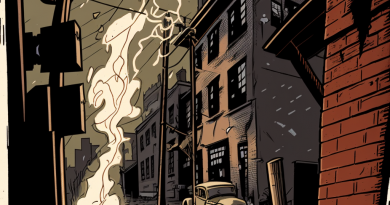NREL Prizes for Energy Innovation
What up, DOE? (ba-dum). I’m working on outreach and engagement around our work with NREL, which is administering a number of Department of Energy-funded prize competitions related to accelerating innovation and adoption of renewable energy. So, naturally, I wanted to tell my readers about it. Each prize is phased, with a grand prize opportunity at the end and interim funding opportunities to help develop proof-of-concept along the way. This is much more accessible than the larger competitive grants offered by the Department of Energy and the EPA that are typically only accessible to municipalities or not-for-profit entities, and it’s my hope that we can get some great representation from the great cadre of Rust Belt innovators.

Upskill Prize
The American-Made Upskill Prize for the Solar Manufacturing Workforce (Upskill Prize) is a $5 million initiative aimed at bolstering domestic solar manufacturing workforce. Structured as a competitive prize, Upskill seeks out innovative solutions to build and scale workforce. Winning teams will receive up to $500,000 for workforce development plans, and the DOE urges teams to consider integrating equity goals into their proposals.
eSCRAP Prize
We’ve all heard about e-waste. Now, the DOE is working on solutions. The Electronics Scrap Recycling Advancement Prize (E-SCRAP) is a $3.95M competitive prize that “aims to stimulate innovative approaches that reduce the costs and environmental impact of critical material recovery from electronic scrap.” E-scrap—which includes cell phones, home appliances, medical or office equipment, and, really, basically anything powered by electricity—represents the fastest growing waste stream globally, with e-scrap generation expected to double between 2014 and 2030. Very little of it is collected and even less ends up being recycled. However, as policymakers start to get more serious about the ethical, geopolitical, and environmental implications of sourcing large amounts of rare earth metals, it’s absolutely crucial. Alongside, you know, solutions like maybe not consuming as much stuff. Competitor teams can each win up to $800,000 in cash prizes and $150,000 in national laboratory support over the course of a three-phase competition.
Perhaps we could find a partner for my erstwhile-proposed framework for recycling cannabis and tobacco vape products, many of which end up in landfills.
SolveIt Prize
In a move to tackle some of the most pressing energy challenges facing communities across the country—ranging from pollution and high energy costs to aging grid infrastructure—NREL is introducing the Solutions for Lasting, Viable Energy Infrastructure Technologies (SOLVE IT) Prize. This initiative aims to empower communities to harness clean energy solutions tailored to their unique needs and hurdles based on the vision of a just transition.
The competition is structured to unfold in three phases—Embark, Engage, and Establish—each designed to foster a collaborative environment between competitors and partners. Participants with a track record of impactful community work are invited to propose a community-scale clean energy project, starting with identifying a local energy challenge and engaging with the community to envision a future solution. The final phase involves developing plans for at least one novel energy or decarbonization project:
.jpeg)
The HeroX description cites an alphabet soup of public agencies and laws that have come together to produce this prize:
“The U.S. Department of Energy’s Office of Technology Transitions (OTT), Office of Clean Energy Demonstrations (OCED), and Office of Energy Efficiency and Renewable Energy (EERE) have collaborated to launch the SOLVE IT Prize. The prize is part of the American-Made program and is administered by the National Renewable Energy Laboratory. SOLVE IT is funded by the Bipartisan Infrastructure Law (BIL) through the Technology Commercialization Fund (TCF).
Please pass this along to anyone you think might be interested.
Learn more about the SOLVE IT prize here, the eSCRAP prize here, and the Upskill prize here. Some visual content in this post was made using artificial intelligence. For more information about our commitment to transparency in the use of AI, please click here.



